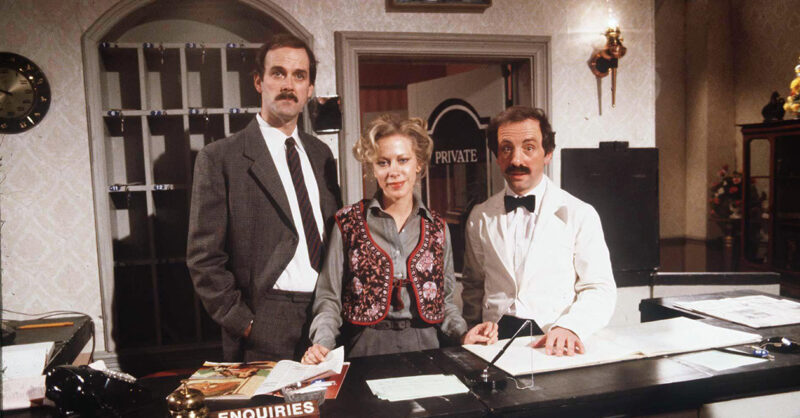A review from.the New Statesman:
Different Times is a chronological survey of the last century of British screen comedy, from the first films of Chaplin through to the Ealing comedies, the Sixties satire boom, the alternative wave of the 1980s, up to today. It focuses mainly on our best-loved television shows and comedians while essaying a breezy social history: comedy as a means to interrogate Britain rather than vice versa.
Unfortunately, the diagnosis that Stubbs offers is reliably hackneyed. Humour is a “consolation prize” of life in these dank, cramped islands. The British, by which he is anxious to make known he mainly means the English, are an unfortunate race: terminally frivolous, “miserably monolingual” and therefore xenophobic; where they do have depth it is usually only as stews of repression, bigotry and loathing. That such an immiserated isle produces such joyous comic talent is only lightly pondered. Instead, Stubbs advances further bloke-down-the-pub analysis of what ails us: declinism, deindustrialisation, post-imperial blues, etc.
…
To laugh is not to take a moral position, or not solely so. A good joke toys with our assumptions and expectations, and liberates the unspoken. A really good one will tap into our prejudices not to propagate them but to jolt us into self-knowledge. As for how we approach the comedy of past, it should depend on what we need it for. A social historian who neglected how Dad’s Army or Morecambe and Wise captivated millions would be hindering their own enterprise. The ghastly relics that Stubbs describes, such as The Black and White Minstrel Show and Mind Your Language, also tell us much about their time. But in artistic or entertainment terms they are inert, as much because of how feeble they are as how offensive.
Indeed, at the close of Different Times Stubbs argues that, partly thanks to political correctness and modern identity politics, comedy has become both kinder and better over the past decade as it rejects the crude stereotypes of old. Stand-ups such as Bethany Black and James Acaster and sitcoms such as Detectorists and This Country are “a haven of considerateness, diversity, multiculturalism, richer in comedic detail and observation”. It’s an appealing idea, but as Different Times shows, the very best comedy transcends its time not merely by being correct, let alone nice. Many of Britain’s greatest comic creations – Fawlty, Rising Damp’s Rigsby, Alan Partridge – are monsters, but, through the skill of those who wrote and performed them, retain across the ages the breath of something human.

